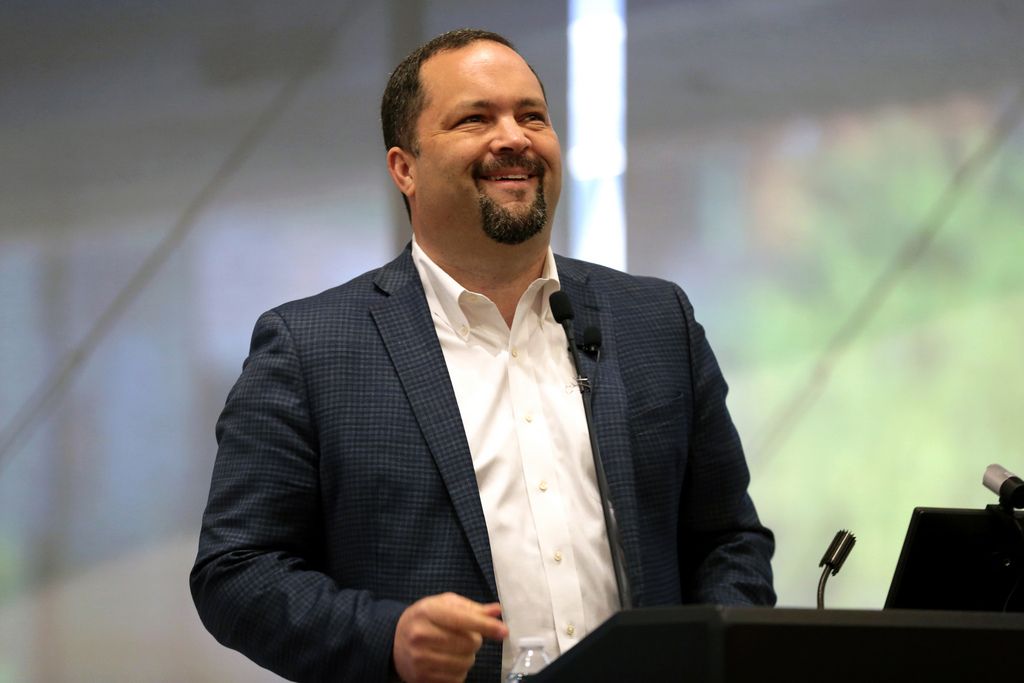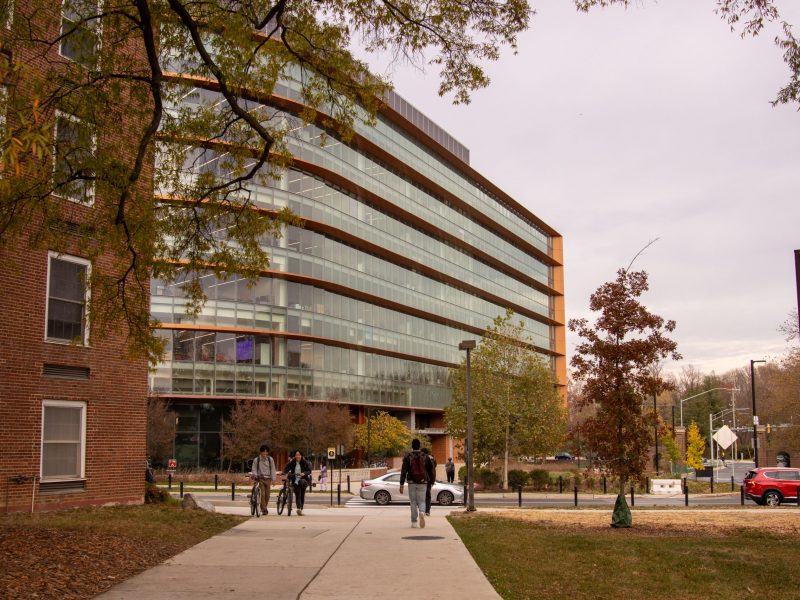After Ben Jealous finished his speech at Hyattsville’s Busboys and Poets in October 2017, a handful of University of Maryland graduate assistants approached him with a question.
The students were part of Fearless Student Employees, an advocacy group at the university. They wanted to know if he’d go on camera expressing his support for collective bargaining.
“Not only do our grad students deserve the right to organize, or our professors at our local colleges, but quite frankly, every public worker in Maryland deserves the right to organize,” he said in a video later posted to the group’s Facebook page.
Now they’re enthusiastically campaigning for Jealous, who’s less than a month away from taking on Republican Gov. Larry Hogan.
[Read more: A UMD alum lost the House of Delegates primary. Now, she wants people to write her in.]
A recent poll by this university and The Washington Post found that Jealous, a Democrat and former NAACP president, is 20 points behind.
But since late September, FSE members have spent their Monday nights canvassing and door-knocking around the campus for Jealous. He’s the first candidate endorsed by the current iteration of the group in its roughly two-and-a-half-year history, said Katie Brown, the group’s president.
“Ben Jealous has gone on record for us and in other places saying that he supports collective bargaining rights for all public employees, of which we are one,” Brown said. “We believe that he’ll make good on the promise.”
FSE is working with the Jealous campaign to map out different routes and neighborhoods, said Charlie Fanning, an FSE member.
“It’s a get out the vote effort,” he said.
[Read more: Some UMD students say they aren’t feeling engaged in governor’s race]
Fanning said electing Jealous could enliven efforts to pass a collective bargaining bill at the state-level.
“It seems to me that the only way forward is to have a change at the state level,” he said. “We think [Ben Jealous] is the most likely to support that campaign.”
Faculty, tenure track faculty, and adjunct professors also lack collective bargaining rights at the the university, Brown said.
Every year, FSE puts forward legislation at the Maryland General Assembly in an attempt to obtain the right to collective bargaining. Other groups, such as community college employees in the state, groups of faculty, and higher education employees, often do too, Brown said.
The last time the group presented legislation, in January, the assembly appropriations committee marked the bill as unfavorable and it was withdrawn.
“[The bill is] almost impossible to get through,” Brown said. “Part of that is because of the Maryland Assembly, and part of that is because of the governor.”
Brown says there’s been a “lack of political will” in the assembly, both delegates and senators. Many state senators have also said Hogan would veto the bill.
Ben Colebrook, this university’s College Republicans president, said he doesn’t see Hogan’s lack of support for bargaining rights as an issue.
If the bill had near-unanimous Democratic support in the House, Hogan’s veto could be overridden, Colebrook said. Democrats currently have a supermajority in the Maryland General Assembly, with a 91-50 advantage in the House and a 33-14 advantage in the Senate.
“When you have unions and collective bargaining, it’s hard to fire people that are doing a bad job, it’s hard to promote people who are doing a good job and it’s hard to give raises to people who are doing a good job,” he said.
FSE member Ellen Platts said getting collective bargaining rights is important because without it, graduate students have a difficult time getting benefits such as workers’ compensation.
“Some students may want to, other students may not want to [join a union],” she said. “Gaining our collective bargaining rights would open that door, potentially, but is also an end in and of itself.”



